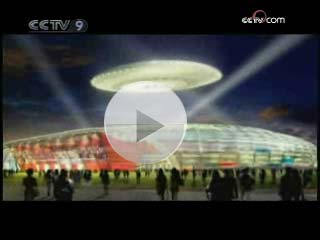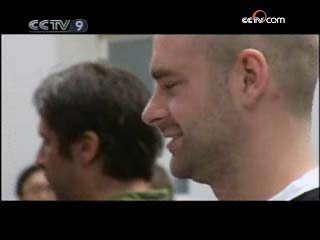Source: CCTV.com
12-17-2008 14:10
 |
Four months later, the design competition for the National Stadium, the centerpiece of the Beijing Olympics, reached the critical moment. The evaluating committee had narrowed the number of designs down from thirteen to just three and recommended these to the decision makers.
The No. 1 proposal was an “opening and closing roof” design from the Beijing Institute of Architectural Design in which hydrogen would be used to raise and lower the roof.
 |
This type of roof had never been applied to any stadium anywhere in the world. The No. 2 proposal was the “sky stadium” co-designed by Japanese architects and Tsinghua University. This design featured two half-domes made of glass that would open or close using revolving and parallel sliding.
The outstanding thing about this design was that closing or opening the roof would take just 20 minutes, at a cost of just 214 RMB in electricity each time. The 3rd design was the “bird’s nest” design from Herzog and de Meuron. This design incorporated the simplest way of opening and closing the roof.
At the presentation, the “bird’s nest” revealed to everyone an unprecedented architectural form, with steel twigs interwoven together like branches of trees. Compared with the other designs, in which the focus was more on the roof, the “bird’s nest” attracted everyone due to its irregular yet beautiful form.
All the proposals for the National Stadium were then released for public viewing at the Beijing International Convention Center for six days. More than 6000 votes were cast, and of the Evaluating Committee’s three highly recommended proposals, the “bird’s nest” won 3506.
The Bird’s Nest design was the one most favoured by the public. Next the Evaluating Committee of 13 experts carried out a strict evaluation of and comparison between the three proposals. Then, after two rounds of anonymous voting, and as the winner of the majority of votes, the “bird’s nest” was slected as the design for the National Stadium of the Beijing Olympics.
